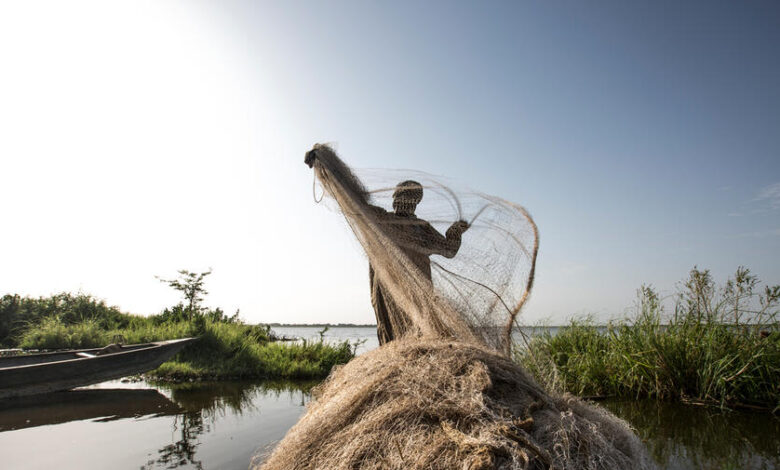In Far North Cameroon, local fishermen are fleeing the coastal areas, as terrorists enforcing illegal taxes intensify attacks.
On Sept. 15, Bashiru Abdallah was at the Douala IV council of the Littoral region in Cameroon to obtain copies of birth certificates for his kids. After escaping terror attacks last year, he had moved to Douala to start his life afresh.
For 20 years, Abdallah worked as a fisherman in Kofia, a Cameroonian island bordering Lake Chad, which hosts fishermen from neighbouring countries, including Nigeria and the Niger Republic.
Since 2014, Boko Haram and the Islamic State West African Province (ISWAP) insurgents, two deadly terror groups, have operated separately, targeting and killing unarmed civilians or kidnapping them for ransom.
Terrorists kidnapped at least 30 fishermen recently and killed ten others gruesomely in Far North Cameroon, according to local media reports. The terrorists had also imposed illegal taxes on the fishermen to allow them to work on the Kofia shore.
Several fishermen said they were forced to pay between $0.65 to $2.6 levies to operate on Lake Chad. Those who could not pay the imposed levies have had to flee the area for more garrison towns.
But the terrorists would not stop asking for levies. They preyed more on these fishermen and farmers in Cameroon during the cash crunch in Nigeria. The terror groups and other transborder traders resorted to Cameroon’s currencies to bypass the Nigerian currency redesign policy.
However, Abdallah and many fishermen on the shore defied the terrorists’ tax orders. The consequence of such defiance, according to the terror groups, is incessant fatal attacks on defaulters. One day in Nov. 2o22, he was returning from his daily fishing adventure when five terrorists ambushed him and his aide.
“I was the last person behind when they started swinging cutlasses and knives at us,” Abdallah said, recounting how several fishermen were killed and kidnapped that day. “When other fishermen started to fight back, I squeezed my way around, but I had a cut in my back.”
Abba Kabir, the President of the Fishermen Association in Darak, a town in Cameroon, told The Guardian Post that terrorists murdered several fishermen and left their dead bodies floating on the lake. He said constant attacks on fishermen have hindered fishing on Kofia Island, as many now run for their lives.
Abdallah and his family have also fled the terror attacks in Kofia to seek shelter in Douala.
“I now work as a dry cleaner with a brother from Niger,” he told HumAngle. “This is better for me because I have a little to feed my family.”
He also said some fishermen left Far North Cameroon for Douala to switch to sand mining on the shores of River Wouri.
The Cameroonian and Chadian governments have made futile efforts to halt violent attacks on fishing communities in the coastal areas, including empowering vigilante groups and random security checks in the Far North. But the terrorists became more brazing, launching attacks on fishermen and displacing them.
Terror attacks in the Far North region displaced nearly 10,000 people between January and May 2023, according to a report by the United Nations Office for the Coordination of Humanitarian Affairs.
“The Mayo-Sava, Mayo-Tsanaga and Logone et Chari divisions are the most affected. Food insecurity, limited access to social services, and inequalities exacerbate the vulnerability of populations,” the report stated.

